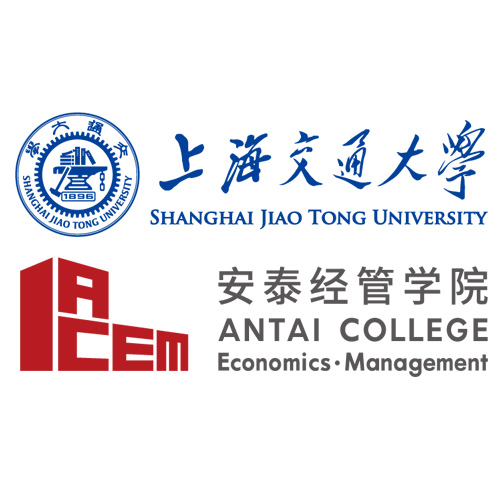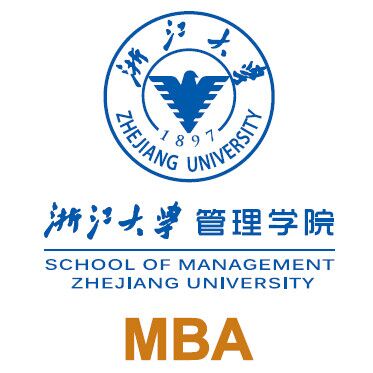Ever since the Chinese Economic Reform started in 1978, there has been a growing spotlight on China. Major companies have been trying to join the Chinese market and individuals from all over the world want to start their business in this fascinating country. Shanghai, as the biggest and most globalized city of China, is usually their starting point. With a deeper and closer connection to the world, many MBA programs are based in Shanghai and taught in English. They accept applicants internationally and are getting more attention. But why? Why should people choose an MBA program in Shanghai?

Why an MBA in China?
Chinese business has been growing at an amazing rate, especially since China joined the WTO in 2001. In 2010, China’s GDP ranked second in the world in size for the first time and it is predicted to exceed USA’s GDP by 2025. In 2015, China’s share of Global GDP is 16.32%, totaling 11.385 trillion US dollars. In the same year, China became the USA’s top and EU’s second trading partner. More recently, Chinese currency, RMB, became part of the IMF’s Special Drawing Right Basket at the end of 2015. “We forecast China to contribute more than before to global output.”, the IMF states.
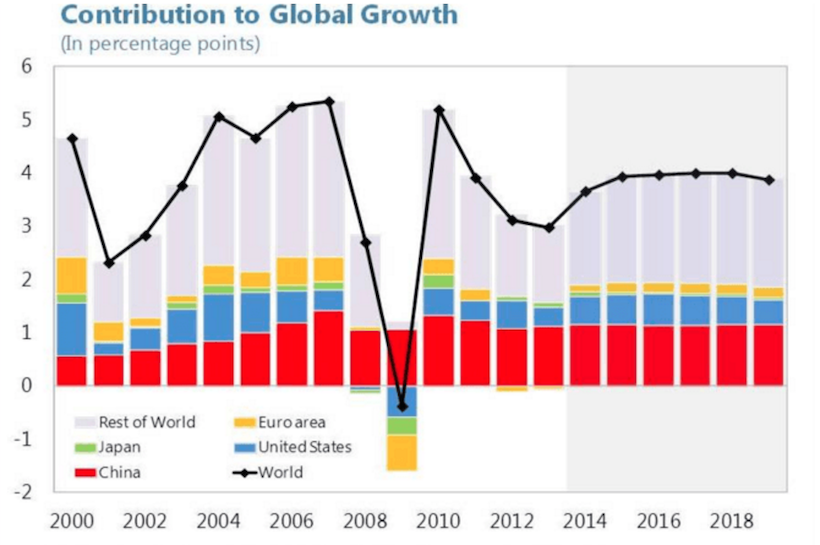
Along with the recent thriving Chinese economy, modern management education began to emerge only in recent decades. In 1991, a committee on Academic Degrees authorized nine universities to offer trial MBA programs with 86 intakes in total. Since then, business education has developed significantly. Today, there are 236 MBA programs in Mainland China. An MBA in China is an open door to the Chinese economy. Most classes have both classical cases from Western countries and Chinese business case studies with discussions that help students better understand the seemingly complicated Chinese business environment.
An MBA experience in China is definitely a must for the future business leaders of the world.
Why an MBA Shanghai?
Since China is a huge country, where should people start? Shanghai is probably where most would recommend as a starting point for many reasons.
First, Shanghai’s location is distinct: it sits on the south edge of the mouth of the Yangtze, which made Shanghai into a transport hub with the world's busiest container port. Politically, Shanghai is also of great importance. As one of the four direct-controlled municipalities, Shanghai received a lot of attention from the Chinese central government. With such a perfect location and political benefits, Shanghai has been one of the fastest developing cities in the world, ranking 16th in the 2015 edition of the Global Financial Centers Index, a ranking of the competitiveness of financial centers.

Second, Shanghai’s culture and history also holds a special status. During the 19th and 20th century, many European countries recognized Shanghai’s trade and economic potential and established the Shanghai International Settlement, which created a deep connection with the West. The word “Haipai” refers to the avant-garde but unique "East Meets West" culture in Shanghai, representing the innovation, inclusiveness, and sometimes commercialism of Shanghai culture.

Shanghai served as a pioneer in the developing of modern business education. In 1984, the China-Europe Management Institute (CEMI), now China Europe International Business School (CEIBS) became one of the first business programs in China. Fudan University in Shanghai was one of the first universities to offer MBA classes. With its connection to the west, Shanghai attracts first-tier faculty and staff from across the world and many of the top ranked MBA programs are based in Shanghai.
Introduction to Full-time/Part-time MBA & EMBA Programs in Shanghai
Full-time MBA Programs
There are many good business schools in Shanghai that offer full-time MBA programs. According to the FT Global Business Education Ranking, 3 MBA programs in Shanghai are among the top 100: CEIBS’ Full-time MBA Program, Antai College of Shanghai Jiaotong University’s International MBA Program and Fudan University’s School of Management MBA Program. The 2016 ranking of these three schools are: 17, 39 and 47 respectively. Further data points from these three programs are pretty impressive: the salary increases for participants according to FT, are 156%, 166% and 163% respectively. Employment rates at three months after graduation are above 95% for all three schools.
Here are a few more details about these schools and their programs. Click the name of the school for more information.
- China European International Business School (CEIBS) is among the first schools to offer MBA programs in China, leading business education innovation in Mainland China for decades. The 18-month, full time MBA program enjoys an excellent reputation with its 75% international staff and impressively strong alumni network. Students need to complete 67 credits with core curriculum consisting of a series of compulsory courses, covering essential managerial foundation skills, business fundamentals, and special topics in China management.
- Antai College of Shanghai Jiaotong University is located in Xujiahui, one of the major commercial centers of Shanghai, provides students with a truly unique opportunity to experience Shanghai’s dynamic business environment first-hand. The school is the only MBA program in China to be triple-accredited by AACSB, EQUIS, and the Association of MBA’s. The International MBA at Antai is a full-time two-year program, with the first three semesters focused on intensive, thought-provoking classroom study, internships or overseas exchange programs and the fourth semester focusing on developing dissertations. At Antai College, students can choose from a regular MBA Program (工商管理硕士), International MBA Program (iMBA,国际工商管理硕士) and CLGO Program (China Leaders For Global Operations, 中国全球运营领袖项目).
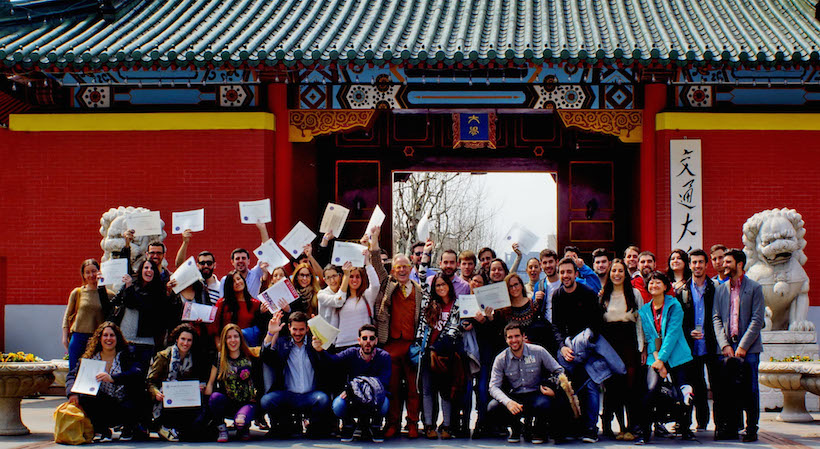
- Fudan University in Shanghai has operates the renowned Fudan-MIT International MBA (IMBA) Program, which was launched in 1996 through collaboration between the Fudan University School of Management and the MIT Sloan School of Management. The program has many highlights: collaboration between two leading business schools, an international faculty and Integrated Action Learning Projects (iLab). Fudan University, as one of the most distinguished universities in China, provides students with limitless opportunities and resources.
In addition to these three amazing schools, other foreign schools have set up campuses in Shanghai that offer great programs, including HULT International Business School, which offers a Master program and Manchester Business School, which offers part-time Global MBA program and Executive MBA program.
Other than the programs mentioned above, there are many more schools that offer full-time MBA programs with different features. Click the name of the program for more information.
- Shanghai International Studies University MBA Program
- Shanghai University Global-Local MBA Program
- Shanghai University of International Business and Economics MBA Program
- East China University of Science and Technology MBA Program
- Donghua University MBA Program
- East China Normal University MBA Program
There are other schools based in the Yangtze-River Delta as well, one of the most developed areas of China. The schools are not in Shanghai but are not far from the city. They are all within 200 km of Shanghai, and are about 1 hour by train from Shanghai. These schools are renowned in China and even in the world and are usually less expensive. Click the name of the school for more information.
- Xi’an Jiaotong-Liverpool University IBSS MBA Programme(in Suzhou)
- Duke Kunshan University Master of Management Studies (in Kunshan)
- Zhejiang University Global Entrepreneurship Program (in Hangzhou)
Part-time MBA Programs
There are many great part time programs based in Shanghai. For more information, please click the name of the school you are interested in.
- BI Norwegian Business School -Fudan University MBA
- Manchester Business School Part-time Global MBA
- Tongji-Manchester Dual Degree MBA
- Shanghai University of Finance & Economics and Webster University IMBA
EMBA Programs
Besides full-time and part-time programs, there is another choice: EMBA, Executive Master of Business Administration. A number of renowned EMBA programs are also based in Shanghai. Here is a partial list and please click the name of the programs for more information.
- The Washington University - Fudan University EMBA
- Zhejiang University- HEC EMBA
- HULT EMBA (Non Mainland China passport holders only)
3 Types of Program in Comparison
| Full-time MBA | Part-time MBA | EMBA |
Tuition | Less expensive | Less expensive | More expensive |
Scholarships | More | More | Less |
Student Average Age | 28 | 32 | 38 |
Work Experience | 3-5years | 5-10years | Above15 years |
Class Size | Bigger | Bigger | Small |
Work Load | Bigger | Smaller | Smaller |
Start Dates | Autumn | Usually May-July | Usually March-May |
Schedule | Less Flexible | Flexible | Flexible |
Admission Process | More Rigorous | Less Rigorous | Less Rigorous |
English Proficiency | Higher Standard | Lower Standard | Lower Standard |
Career Planning in Shanghai
You are probably wondering what will happen when you graduate with a Chinese MBA degree. You can always go back to your home country. With the unique experience, connection and knowledge you gained, more job opportunities will definitely be available.
Starting a career in Shanghai is another option. It's no secret that Shanghai is one of the most popular cities to launch a career in. According to CEIBS’ Career Report for the class of 2015, 50% of international students stay in China and look for jobs after graduation.
Most MBA programs in Shanghai have strong career planning and service departments, and many Fortune 500 and major Chinese companies have branches in Shanghai and prefer applicants with business educations. With the knowledge of Chinese economy, culture and language you learn from MBA programs, you will have a significant advantage when applying for jobs.
The alumni salary of CEIBS, Antai College and Fudan University School of Management are: $147,716, $113,340 and $ 96,884 (US Dollars) respectively, all high compared with living costs in China. Positions and job titles may vary. But here are two examples: Sun Yuanyuan, Business Analyst in Bayer Material Science; Tiffany Lam-Balfour, Business Analyst/Consultant, Wall Street stockbroker and research analyst for Credit Suisse and UBS.
Application Process
An MBA experience in Shanghai would be quite a journey for you. But what does it take to be part of an MBA program in Shanghai?
It’s always the best to check school websites, since different schools have slightly different requirements. But here is some information from Antai College SJTU, just to give you a sense of what the whole process may look like.
The applicants need to have: 1) A bachelor's degree or equivalent. 2) At least 2 years' work experience. 3) Proof of language proficiency. (TOEFL: 90/ IELTS: 6.0) 4) GMAT Score of 500+/ GRE score of 310+ (The National Entrance Exam for students from Hong Kong, Taiwan and Macao is required if you are from one of these three regions, while Foreign Passport holders need to take the GMAT/GRE.)
Other materials are also required: 1) Official university transcript 2) Resume. 3) Personal Statement. 4) Two reference letters.
As to the deadline, it varies among schools. Usually, there will be a few rounds. For Antai, there are four rounds from December to June. It is always better to start the application process early, since you need extra time for the student visa acquisition.
After you submit the documents, there is usually an interview, an important part of the process. For Antai College, typically three professors/admission staff will conduct the interview, which lasts for 20-25 minutes. Topics include school and professional background, reasons for choosing Antai, as well as questions based on the applicant's resume, transcript, etc. Generally speaking, a face-to-face interview is required, lasts about 30 minutes in English and is conducted by faculty, alumni, or admissions officers.
Financial & Living Issues
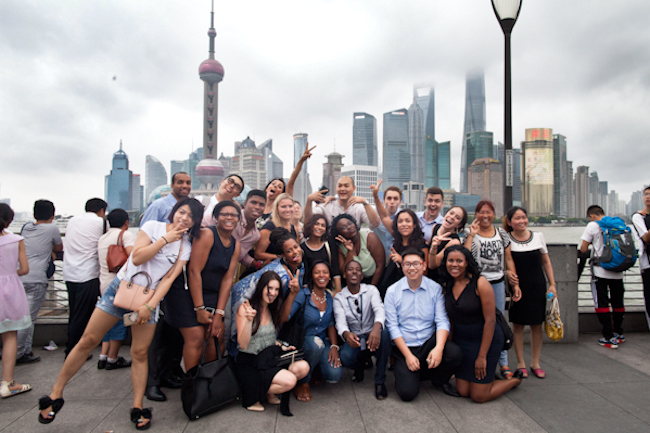
After you submit your application, there is a lot more to do to prepare for this exciting experience. Here are a few tips to help you get ready:
1. Tuition: there is usually an application fee of about $100 USD. The tuition varies enormously among schools, from USD $15,000 to USD $60,000. For Antai College, the tuition is around USD $32,000 and can be paid in two annual installments.
2. Housing: A small apartment costs about USD $400 per month. Living costs can vary a great deal depending on students’ lifestyles. According to Antai College, aside from the rent, students can live comfortably on USD $600 per month.
3. Scholarships: Scholarships are available for international applicants in most schools, based on applicants’ work experience, test scores, and undergraduate records. Antai College offers 5 different types of scholarships.
4. Food: A lot of foreign students fall in love with Chinese food during their stay. Even if you find that Chinese food isn’t attractive, there are tons of great Western restaurants and supermarkets with imported goods if you prefer to cook your own meals.
5. Transportation: You don’t need a car to get around the city, since Shanghai has a very convenient public transportation system. There are metro lines across the city. Buses and taxi are also options.
6. Communication: Like the rest part of the world, communication in Shanghai relies heavily on mobile phones, so it would be smart to get a Chinese SIM card. There are three phone service companies: China Unicom, China Mobile and China Telecom. All three have different plans and cost around USD $30 per month.
7. Language: It’s always helpful to learn a bit of Chinese, though you can still live in Shanghai without knowing any. Many schools offer Chinese classes. Antai offers free 3-hour weekly Chinese courses focusing on everyday topics relevant to living and working in China.
8. Insurance: According to the Ministry of Education, internationals students in China for a period over six months are required to have insurance. Most schools will handle that for you and you can find information on their websites.
9. Visa, health Certificate and other materials: According to China's laws, foreign students are required to hold a valid visa (X1-Visa) and a Student Resident Permit. Students also need a health certificate which can be acquired by undergoing a medical check at Shanghai International Healthcare Center. Usually, the school will guide you through the procedures.
If you need more information about MBA programs in Shanghai or wish to get insights from insiders and alumni, please contact ying.zhao@whichmba.net.






